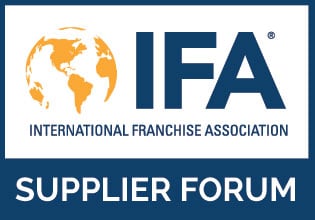
Franchise Setup Design - Engineering and Design
How It Works?

Step 1
You send us franchise requirements and floor plan

Step 2
Our experts will work on the design as per IBC and local state codes

Step 3
We deliver the clash free MEP design with you
Franchise Setup Design
- The industry’s fastest turnaround time of 2 weeks
- MEP design as per your Standard guidelines
- Code compliant design
Need help or additional information?
Give us a call on
(786) 788-0295
Franchise Setup Design: MEP Engineering Services
Smart Design
One stop solution for a cost effective modular MEP design for all your location's
Code Compliance
Modular MEP design shall be IBC compliant
Adaption
As your full service partner, we adapt to your franchise brand vision
Franchise Setup Design: MEP Engineering Services

The franchise business model is commonly associated with fast food restaurant chains. However, franchising has been applied in many business sectors, covering products and services alike. For example, there are commercial franchises from car rental companies, dry cleaning companies, gas stations, hotel chains and even banking institutions. However, a franchise comes with stringent requirements in all areas of business, and this includes the initial construction requirements.
- In the franchise business model, the commercial franchise (or franchisor) is the company who owns the product or service, and the franchisee acquires the rights to market that product or service.
- In other words, the franchisee agrees to assume upfront costs and share profits, in exchange for using a proven business model.
- This also means the franchisee must meet extensive requirements from the franchisor. When the premises are built, for example, they must meet both local building codes and franchise requirements.
Hiring a qualified engineering firm is recommended when starting a franchise business. Building codes are very demanding in major urban centers like New York City and Chicago, and in this case they are combined with franchisor requirements.
Commercial franchises have their own terms and conditions, but normally they charge an upfront fee and ongoing royalties. Generally, these royalties are calculated as a percentage of total sales. Franchisees can sign a single-unit agreement if they only plan to open one location, or a multi-unit agreement for several locations. Multi-unit franchise agreements can be further classified into two main types:
- Area development franchises, which grant the right to open several locations in a region.
- Master franchises, where the franchisee can offer sub-franchising in a specific region.
Designing a Commercial Space for a Franchise Business
Commercial franchises have high standards before opening a new location, since their brand image is at stake. First of all, franchises have aesthetic requirements. These normally include a color scheme, along with architectural and interior design features. However, there are additional requirements that depend on the type of business, such as the following examples:
- Restaurant franchises have stringent requirements for their commercial kitchens. These cover aspects like beverage and food hygiene, preparation efficiency, personnel safety, and storage conditions for ingredients.
- Gas station franchises have stringent fire safety requirements, since fuel is handled all the time. Franchisees can also expect demanding specifications for fuel pumping and metering systems.
- Franchises in the financial services sector have demanding requirements in areas like security and monitoring.
Regardless of the business sector, franchisees must design and install all building systems according to the franchise requirements. There are commercial franchises who get closely involved in the construction process, and they may even request background information from architects, engineers and contracting firms.
Some franchisors provide generic construction documents and even sample drawings for new locations. However, consider that all projects must be approved by local building departments. Franchisor documents can be edited or used as reference, but you still need to approve the final design with local authorities. This step can only be completed by a registered design professional - typically a Registered Architect (RA) or Professional Engineer (PE).
Engineering services can also help you with compliance when starting a franchise business. For example, HVAC engineering can help you meet any ventilation and cold storage requirements in a restaurant franchise. The services of qualified design professionals pay off with simplified compliance.
In restaurant chains and other food franchises, a very important requirement is using adequate grease interceptors. The fats and oils released during food preparation can accumulate and solidify in pipes, blocking the sewage system. This is a major sanitary hazard that must be avoided at all costs. In this case, the franchisee can face legal consequences from both local authorities and the franchisor. A blocked sewage pipe creates a health risk for neighbors, and in the case of franchises it also hurts brand image.
Commercial Franchise Site: New Construction or Renovation?

Some franchisors select new locations on their own, and franchisees must choose among the sites available. However, when the franchisee is allowed to select the new site, there is a very important decision - building from zero or renovating an existing property? There are pros and cons in each case.
A new construction from the ground up is one possibility for franchisees, but this will likely be an expensive option. A simpler approach is purchasing or renting a commercial space in a core-and-shell building. The structure and basic services are already provided, and the franchisee can adapt the space as needed by the franchisor.
If allowed by the franchisor, commercial spaces that have already been occupied before are viable. However, remodeling an existing space can work against you or in your favor:
- If the premises were previously used for a similar business, and if the franchisor allows it, existing building systems may be reused. The upfront costs may be reduced substantially when this is possible.
- On the other hand, if the existing premises must be changed completely, using a new commercial space will likely be less expensive. Starting from zero in a new site is cheaper than dismantling an existing location to start from zero anyway.
When the franchisor lets you choose where to run the business, a professional engineering firm can help you find the best site. Ideally, you should get a property condition assessment (PCA) to identify any hidden issues that may increase costs. Commercial franchises are characterized by high upfront expenses, and all decisions that lower costs will increase the return on investment.
- For example, if a franchise uses large amounts of electricity, the franchisee should select a commercial space with an adequate power supply.
- Otherwise, there will be an additional cost to upgrade the electrical installation.
Franchisees must meet all requirements in the agreement, but going overboard is not recommended either. Overbuilding is a waste of capital, which could be used more productively for energy efficiency measures and water conservation.
Importance of Construction Management in the Franchise Business
Avoiding change orders is beneficial in all construction projects, since changes are a waste of materials and labor. However, commercial spaces for franchises can have two types of compliance issues: not meeting construction codes and not meeting franchise requirements. This means a project can be 100% compliant with the local building department, and still have issues with the franchisor.
- Many franchisors include a maximum opening date among their requirements, and there may be penalties if the franchisee cannot finish on time. Like in any construction, effective project management is key for meeting deadlines.
- To meet demanding technical requirements under a tight schedule, the best recommendation is working with a qualified engineering firm.
- A new location for a commercial franchise involves many suppliers and skilled trades, like any engineering project. All these parties must be coordinated effectively to avoid delays, while making sure the project meets codes and franchise requirements.
When a franchise opens in a commercial building with rental spaces, the landlord will likely have a third set of specification documents (in addition to building codes and franchise documents). To meet all requirements with minimal hurdles, professional design and construction management services are strongly recommended.
Energy and Water Conservation in the Franchise Industry
Unless a franchisee purchases the property in cash, there will be a monthly rent or commercial mortgage to pay. The business must also generate enough cash flow to cover utility bills, salaries and taxes, all while leaving a profit margin. However, franchisees can increase their profits with energy efficiency and water conservation.
Among the costs involved in a franchise business, utility bills are arguably the easiest to reduce with smart engineering decisions. Royalties and taxes are percentage-based, but there are many ways to reduce utility bills:
- Implementing energy efficiency and water conservation from the design stage.
- Promoting energy and water conservation among collaborators, and even customers.
- Deploying a renewable generation system on site to reduce power bills, when the franchise requirements allow it.
Depending on the business sector of each franchise, the effectiveness of energy efficiency and water conservation measures will vary. However, some measures are effective in a wide variety of commercial spaces. For instance, energy consultants often recommend LED lighting, since the payback period is less than 3 years in many buildings. Also, consider that cooling and heating are among the highest energy expenses in commercial settings, and HVAC efficiency measures are strongly recommended for this reason.
To conserve water, a simple and effective strategy is using plumbing fixtures with the WaterSense label from the US Environmental Protection Agency. This label covers many plumbing fixture categories, and more are being added over time.
- These plumbing fixtures are tested by approved third-party labs, to validate water savings of at least 20%.
- Even greater savings are possible in franchises that use plenty of hot water, since efficient plumbing fixtures also reduce the amount of water heated.
Starting a franchise business involves a considerable upfront cost, and the franchisee must cover royalties, operating costs, and in many cases loan payments. Energy efficiency and water conservation can help reach positive cash flow, which is critical for success.
When implementing energy and water conservation in a new franchise location, any measures that conflict with the franchisor requirements must be avoided. For example, if the franchisor requires a minimum flow rate for a plumbing fixture, any water-savings fixtures below this value cannot be used.
Fire Protection Systems for Commercial Franchise Locations
Having reliable fire protection systems is important in any building - residential or commercial. However, the role of fire protection is even more critical in the franchise industry:
- Many commercial franchises serve a large number of customers each day. Reliable fire protection is required not only for collaborators and property, but also for customers.
- Just like a sanitary issue, a major fire can hurt the brand image of a commercial franchise. Therefore, fire protection requirements are vital in any franchise agreement.
Fire alarms and automatic sprinklers are among the most widely used fire protection systems. While fire alarms warn personnel and customers to evacuate, automatic sprinklers extinguish flames before they spread. With the combination of fire alarms and automatic sprinklers, many fires are quenched without casualties and without help from the local fire department.
In the franchise industry, fire protection requirements are strongly determined by the business sector. For example, the fire protection systems in a commercial kitchen must deal with possible fires produced by kitchen equipment and cooking oil. Even more stringent requirements can be expected from a gas station franchise, since large amounts of fuel are stored on site.
In franchises that don’t work with flammable materials, the franchisee can expect fire protection requirements similar to those of a commercial office. However, fire protection is equally important for all buildings, regardless of the specific needs of each business.
Building Information Modeling for New Franchise Locations
The benefits of Building Information Modeling (BIM) extend to all areas of construction, and this includes the franchise industry. When starting a franchise, one of the main challenges is meeting all the requirements. However, when a commercial space is modeled with modern design software, key information and specifications can be added directly to components. This makes the process simpler, since construction professionals can rely on a single model for most of the information needed.
BIM is also very useful when building systems must integrate with specific equipment required by the franchisor. In a commercial kitchen, for example, BIM can help you integrate the installations required by code with the specific kitchen equipment required by the franchisor.
When the specifications provided by a franchisor use conventional 2D drawings, a professional engineering firm can also help you with CAD to REVIT conversion. Equipment dimensions and mounting details are easier to visualize in 3D, and meeting the franchise requirements becomes easier. REVIT modeling is especially useful when a franchise requires rooms and equipment with very specific features. These can be added to the model as a starting point, and all the MEP installations are then designed accordingly.
Meeting construction codes on their own is already a challenge, and the list of requirements increases when a franchisor and a landlord are involved. However, by working with qualified design engineers who use the latest design software, compliance becomes much simpler.



